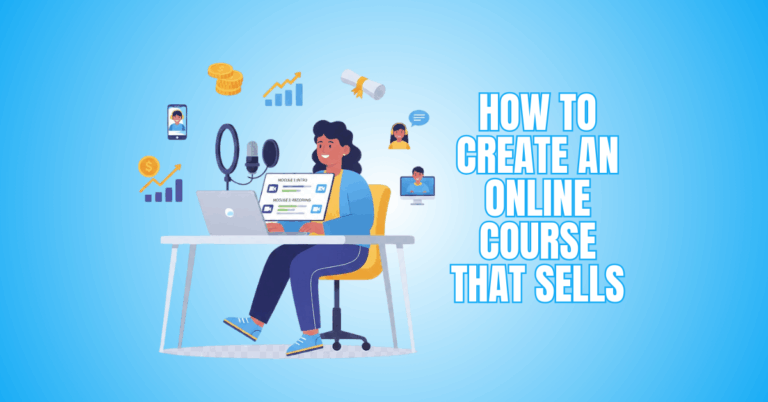How to Become an Excellent Online Teacher
Introduction To How To Become An Excellent Online Teacher
The number of students who are attending online schools is growing significantly during recent years. If you are a teacher in the traditional classroom or working as a counsellor or instructor in a school, you have the required knowledge to launch a career teaching online. Are you interested in how to become an excellent online teacher?
Teaching online has a beneficial nature, such as the possibility to take the job anywhere and device friendly; which shows the flexibility of this career. However, the ability to take your job everywhere is not always good since your job will follow you around. Besides that, your students can contact you whenever they want, so you will find yourself grading and offering feedback at unusual times.
Another concern is the device that you need to work with. It can be your smartphone, tablet, or laptop. You also should master the new technology, as your work depends on it. But once you learned how to do that, converting your teaching skills into an online teaching version allows you to travel or take a part-time job to make more money.
What you need to know about teaching online:
- Required technology for online education
- Creating a schedule for teaching online
- Communication while teaching online
- Teaching in a live online class
Required Technology For Teaching Online
What types of technology do you want for online education? Good internet connections, a laptop with a webcam and keyboard, a pair of earbuds, and, depending on the program, a phone to dial in are the most required facilities.
Educational technology is adapting fast, allowing online programs to be better than ever for learning. Most people have access to all basic technologies, such as built-in cameras and microphones in their computers, the ability to quickly and easily watch a video, “Web 2.0” structures that enable discussions and exams.
A powerful online program needs to have the following:
Virtual Live Classes
When online learning started, it was very static. The course content was mostly in written format, and the few videos or other interactive content were all formed for some personal use. But today, the engaging online program has live classes that make it easy to have real-time discussions on a high-quality, easy-to-use platform.
Live classes enable students to:
- Listen to the teacher in real-time and communicate with other students as the lecture occurs.
- Be observed through webcam, which causes students to pay attention and engage in the lecture. Participation, like the real-life classes, leads to better online learning.
Try to keep live classes with limited students to make it easier for students to participate; fewer than 15 people are good.
Breaking out the class into smaller groups of students for discussion is essential. Although group projects are assigned in the traditional classroom, a good learning management system should enable for creation of small groups for discussion online too.
A Good Learning Management System (LMS) Used For Teaching Online
LMSs are the software application platforms that deliver educational technology content for online courses. These contents can include videos, slide charts, or files of the teacher’s live session notes and other media, like links to the reading material or outside media. As these platforms are used for live sessions, teachers can quickly and clearly share media without too many technical issues. Students also can contribute their own notes, discussion threads, and assignments and tests in a simple and reliable system.
The best way to make sure you are taking advantage of the entire online learning program is to properly know LMS. When you learn it well, you will reduce mistakes while working with the system, learn ways to save time, add variety to your lessons, and learn other actions that are not possible in a traditional classroom. Some components to concentrate on:
Recognize The Most Common Technical Problems
Do not be embarrassed when working with your course creators. Discover the most occurred issues, either technical or other problems, and they can make a list of fixes you can use to help students facing issues. You need to have tech backup, too. Get a phone number or email address to which you can refer students.
Find Out Platform Tools To Make Learning And Discussion More Productive.
Be informed about the system’s special tools and functions. Is there a way to poll all of the students to measure their understanding of a subject at the same time? Is it possible for students to write their thoughts or questions into a chat or discussion while another student is speaking?
Interactive Course Content
When online classes have developed, reading assigned content becomes a thing of the past. LMSs allow for discussion questions, quizzes, and real-time features, like chat, to keep conversations lively and learning activities.
Tech Support For Teaching Online
The biggest fear about online learning is navigating a technical platform. If you have not technically experienced it, then computer-related issues can be a real concern.
Other than issues with the LMS, your computer may malfunction, preventing access to live sessions, proper display of content, or submission of assignments.
Good programs know this and have their own tech support staff. This resource is also accessible for teachers who need immediate help if their PowerPoint presentations crash during class time. Tackling problems by responsible staff will enable teachers to concentrate on their lessons, and students can feel comfortable when knowing there is help for any issues they may encounter.
Mobile Access
People who work and study prefer to attend online schools. It makes it possible to watch a lecture on a lunch break while travelling for work or going back home by bus.
Creating A Schedule For Teaching Online
Online education needs special considerations. What you previously told the students verbally now should be converted into text. Also, you should be informed about the technology options that are available to be sure you are taking advantage of your options: Are there timed quizzes? Does your LMS allow links to YouTube? Can students record videos while answering discussion questions, or does their homework be in text form? In addition to knowing the ins and outs of the LMS you are using, here are some ways to create a successful schedule:
Knowing The School’s Process To Create Course Material
Your in-classroom material to an online environment will be depending on what resources you have, which is related to the program you use and the system they have in place. For example, they may ask you to divide what you previously taught in one day class into 10 or 12 1.5 hour live sessions.
Prepare Homework And Reading Materials Accordingly
You are not supposed to pass out papers or limit reading assignments based on what is in textbooks. In a virtual class, you can link students to whatever you find interesting and helpful, like online journals, TED Talks, YouTube tutorials, and blogs.
Get Answers From Experienced Online Teachers.
It is a big chance that there is someone who taught the same class before you. You may be able to use its asynchronous content. You can use previous teachers’ experience on how to design your live sessions to coordinate? Would it be better to assign different homework or use new resources? Armed yourself with what you have already got to work with to prevent wasting effort.
Teachers who teach online are informed more than everyone about what it is like to teach online courses. Ask your questions and get tips from experienced teachers in the program, or consult with teachers at other schools who use the same LMS technology.
Vary Assignments For All Learning Styles
While you teach online, it can be more difficult to understand the students’ learning styles. Use various assignments and course materials to be sure each student receives the opportunity to learn in the way that fits best for them. You also can learn that your LMS will assist you in tracking class performance on different types of assignments and provide a better understanding of how students are learning the material.
Understand The Size Of Your Class
The number of students you are teaching will affect the types of lessons and assessments you will conduct. For example, in large classes, short answer or essay tests can be challenging to grade, but technology helps things like multiple choice exams be even easier to grade than in a physical classroom.
Class size will also affect homework vs. live course material. Do you have enough time for 20 students to separately present during live sessions, or does your technology enable for break out groups that can present as one?
Another consideration is to reach students who missed classes. Recordings of live sessions and comprehensive asynchronous content can aid students to stay well-informed of class material, even if they miss a class.
Communication While Teaching Online
All teachers have office hours, and online educating is no exception. Be sure you inform your students how they can reach you. Create an account on a social media platform to host a conversation at the same time every week? Setting time for phone calls as needed? Answering the students’ questions after class?
To inform the students about their responsibilities, establishing a schedule for the course, and have clear expectations are crucial, especially because things may feel less formal in online classes. Keep your course following your program’s best practices. Thus you can form your online teaching based on what has been proven to work.
Getting feedback in an online class is somehow difficult, so try to provide feedback when it is possible for you. You can also ask yourself for feedback about how students are doing and what they require more, and provide the course creators with that information so that necessary changes can be made. Anticipating the students’ experiences in online classes is hard, so asking them for information can help a lot in shaping great experiences for future students.
Teaching In A Live Online Class
Previously, online classes have been asynchronous. It means the students are involved with the course materials when they could or during their own timetable. Today, some programs are showing live sessions, and the teacher and students can meet each other online for a live lecture or discussion. Although live lectures and real-time interactions is a huge advantage for the students who stand to benefit from in-class discussions with other students, it can be overwhelming for a teacher who is conducting an online class for the first time.
If it is the same for you, and you want to prepare yourself, learn the technology you need to instruct the class, composed of all the functions you may need and actions you will perform. Examine with your tech team to make sure you understand how to perform the basic functions of your class, such as how to present a slide show, share your screen, transfer control to a student who is giving a presentation.
Do Not Be Scared By The Process
Although it is taking time to learn the steps, finally, teaching an online class will become automatic, and you will be able to pull from your skillset repeatedly with every new class you teach.
Seek Support
Many programs provide you with support for your first class. It means a tech person will sit in on your live session in case you need help. When you know, there is someone, and if you need help, they can support you, makes you relax and enjoy your first class a little more, so find out if that is an option.
Accept The Flexibility.
While you are travelling or not in your workspace, you can still conduct the student-teacher interaction of a classroom, and this is the flexibility of an online class. Although it can be stressful to learn new technology, focusing on the rewards can make it a little easier.
Conclusion To How to Become an Excellent Online Teacher
The number of students, who are attending online schools all around the world, are growing significantly during recent years. If you have already experience teaching in the traditional classroom or working as a counsellor or instructor in a school, you have the required knowledge to launch a career teaching online.
In this article, we provide you with the information that you will need to know to prepare yourself for teaching online.
I trust you enjoyed this blog post on how to become an excellent online teacher. Please stay tuned for more articles to come. Take care!
JeannetteZ
Your Opinion Is Important To Me
I would love to hear from you. Please leave me your questions, experiences, remarks, and/or suggestions about how to become an excellent online teacher in the comments section below. You can also reach me by email at Jeannette@WorkFromAnywhereInTheWorld.com.
You might also enjoy the following blog posts:
The Best Online Teaching Platforms










